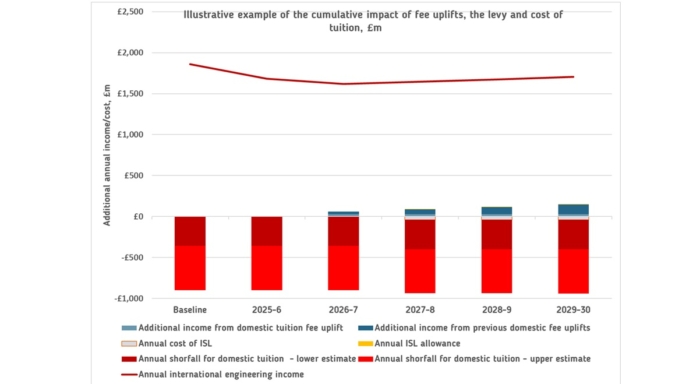The Financial Times has published a letter from the EPC Chief Executive in response to its coverage last week of new UCAS data showing a “surge” in applications to UK engineering degrees among 18-year-olds. In his letter, Johnny Rich says the increase is “unlikely to help meet the UK’s shortage of graduate engineers” because universities cannot expand places due to the high cost of teaching engineering degrees and insufficient funding. The unabridged version of the letter is below for those of you without the requisite subscription.
Dear Editor
The Engineering Professors’ Council welcomes the ever-wider recognition among applicants of the value of a degree in engineering (Surge in 18-year-olds applying for UK engineering degrees, 14/2/25), but sadly, this is unlikely to help meet the UK’s shortage of graduate engineers.
Engineering degrees are among the most costly degree programmes to run, involving long contact hours of teaching and expensive facilities. In our recent submission to the Comprehensive Spending Review, we estimated that the average cost is almost twice the funding available. Given the financial challenges across the higher education sector, many universities simply cannot afford to admit more domestic engineering students. Each additional student would make their losses worse.
The only way to expand capacity is to increase the international student intake and use their higher fees to subsidise more places for UK students. However, with international demand under pressure, this is an option for only a few universities.
Unless the government addresses the crisis in higher education funding, strategically critical subjects like engineering that are vital to drive growth and opportunity, will be shrinking even while applications rise and employers complain of widening skills gaps.
Yours etc,
Johnny Rich




